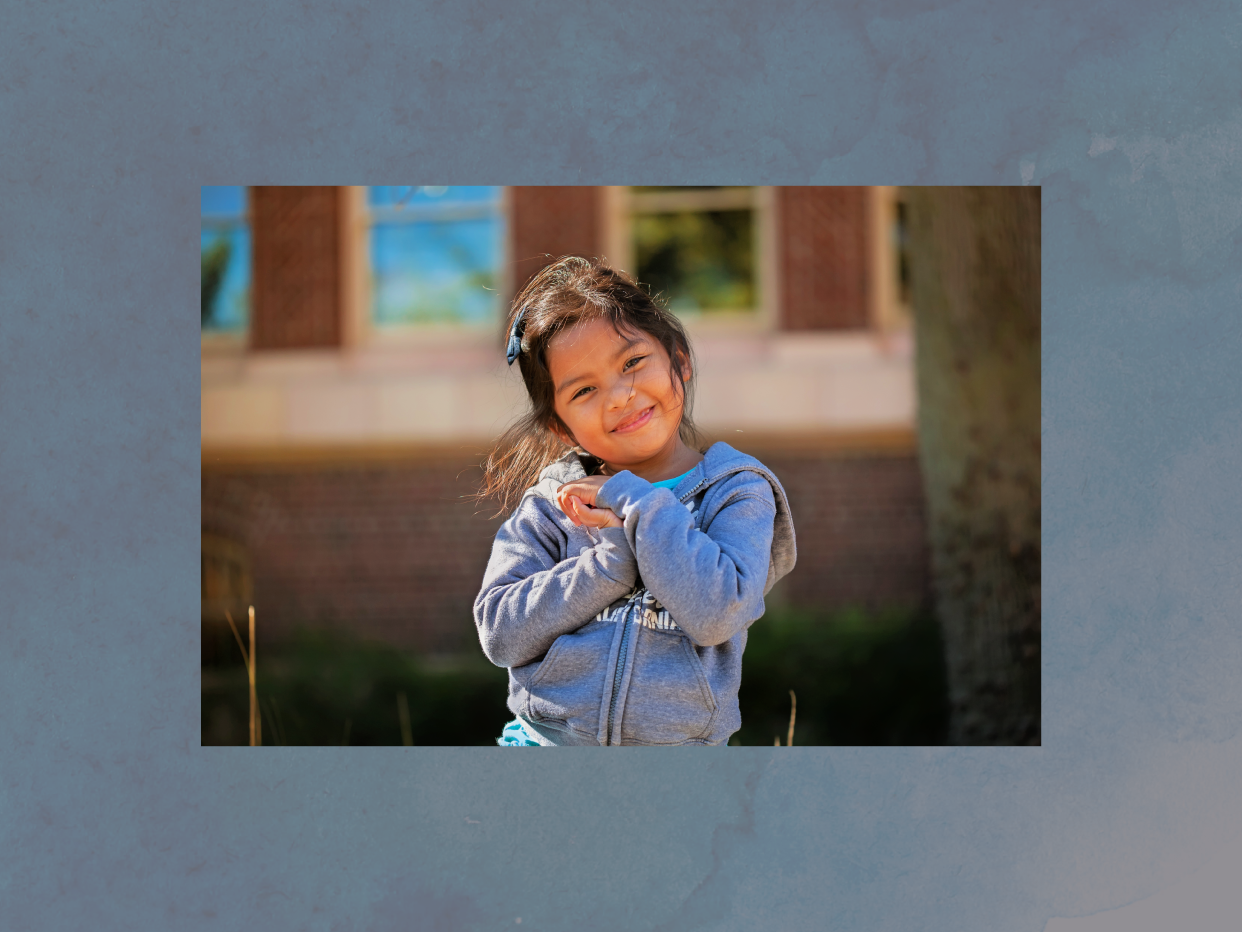Celebrate Thanksgiving By Teaching Kids the Power Of Gratitude

In recent years, there’s been more necessary conversation about the problematic nature of Thanksgiving. Yes, even I grew up participating in cultural appropriation and whitewashing (did anyone else wear a headband with a feather while learning about the so-called blissful shared meal between the Pilgrims and Indians?) Thankfully, these false narratives are continually exposed, and conversations about decolonizing, reframing, and rethinking Thanksgiving are emerging.
It would be easy to cancel Thanksgiving completely, but since it seems to be sticking around, parents should choose this time of year to focus on the power of gratitude. The benefits of cultivating the practice are undeniable: Research by Dr. Robert A. Emmons, a professor of psychology at the University of California, found that exercising gratitude can lower blood pressure, improve immunity, and lower lifetime risk for depression. While a study conducted by the University of Southern California found a connection between gratitude and areas of the brain associated with stress reduction.
More from SheKnows
Another benefit of a grateful mindset is resilience because it fosters adaptive coping mechanisms and positivity. “There is no resilience without gratitude,” Emmons tells SheKnows, adding that parents of grateful children may witness a calmer, content, confident, and compassionate kid.
“Practicing gratitude can increase happiness by 25 percent and it’s never too early for children to begin.”
According to Emmons, practicing gratitude can increase happiness by 25 percent and it’s never too early for children to begin, considering the issues they’re faced with, whether it’s navigating the realities of the pandemic, pending climate doom, racial injustice, or unrealistic models of success and appearance.
Today’s culture is divided by politics, religion, class, and so on, which can be exhausting; however, as Emmons points out, “We can actually be grateful for disagreement itself because in a democracy it is the source of strength. The key is to maintain respect and compassion, intellectual humility, and a healthy sense of humor. Gratitude enables us to see the good in the other and our common humanity, even in the midst of ideological diversity.”
The case for cultivating gratitude is clear. But how can parents do that between running from school drop-off to playdates, and the doctor’s office? I’m no expert, but I am parenting three children — a 5-year-old and 7-year-old twins — and here’s what we’re trying at home.
Modeling Gratitude
Kids are always watching, thus it’s futile to talk about gratitude if you’re not embodying it. My husband and I are intentional about thanking cab drivers, crossing guards, store employees, and even each other. We also name the moments that stretch us: Last night, my son said that he didn’t like it when I asked him the same question more than once. “Levi, I am grateful you told me how you feel,” I told him. That is important for me to hear.” This small act demonstrates how we adults are also learning and growing and we aren’t closed for critique.
Doing a Nightly ‘Gratitude Drop’
Our days are busier and quicker than we’d like, and having dinner together with time for any meaningful conversation is difficult. But we try to engage in a nightly “gratitude drop,” with each of us sharing at least three things we’re grateful for that day. When we first began, there were a lot of blank stares and that makes sense — we’re conditioned to believe that practicing gratitude must be complex or time-consuming. But that’s not the case: This week, for example, my son was grateful for time off from school, while my daughter was thankful for candy.
Writing Thank You Notes
I’ll admit it: I kind of hated this practice growing up, but now I encourage my children to get into the habit. Thanking people by writing them notes after receiving a gift is customary, but placing thank you notes around your neighborhood or apartment building for the mail carrier or custodian moves the practice of gratitude into an appreciation for the community at large and everyone’s place in it — especially those who are often underappreciated.
Praying or Meditating
I’m an ordained Minister, thus prayer is central to my vocation. My family prays before dinner and — when we’re not cranky — before bed. Prayer speaks to our values as an act of prophetic hope. When we thank God for laughter, that expresses how we value it. When we give thanks for our health, housing, and food, that demonstrates our belief that God cares about the protection and nourishment of people — and therefore so should we. We also enjoy gratitude meditations such as this one before school, bedtime, or whenever I sense we could use a reset.
Giving Back
We encourage our children to donate a portion of any money they receive to a cause they care about. And we talk about gratitude when we give our time — if we’re volunteering at a food bank, for example, it’s because we are grateful for organizations that feed the food insecure and we’re grateful that we can see the systemic problem of food scarcity and poverty as the first step to irradiation of an injustice.
The turkey — along with the football, I hear — is coming no matter what. So let’s use this holiday to begin healthy practices of gratitude, which can last all year long.
Best of SheKnows
Sign up for SheKnows' Newsletter. For the latest news, follow us on Facebook, Twitter, and Instagram.

